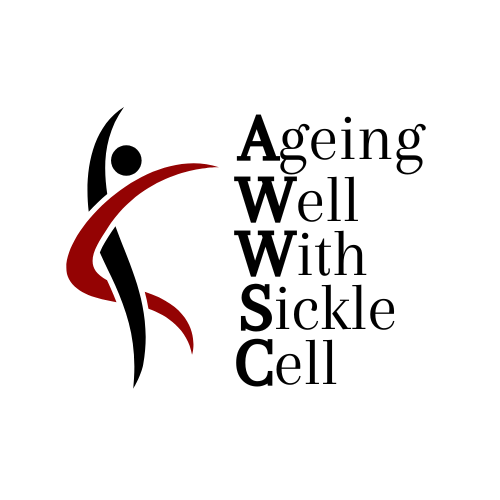Who is Eligible?
Inclusion criteria:
All patients with a diagnosis of sickle cell disease registered for specialist care to King’s College Hospital.
Aged 35 and over.
Able to understand and provide written informed consent.
Able to use computer software and virtual means of communication (e.g. MicroSoft Teams).
Exclusion criteria:
Patients under the age of 35.
Patients with sickle cell trait (‘carrier’, HbAS).
Patients not registered to King’s College Hospital.
Patients unable to provide informed consent.
Patients with a conflict of interest with drug company, herbal product sales or providing a (commercial) health care service.
Visit our ‘Informed Consent Information’ page for access to the patient information leaflet and to book a meeting with one of our clinical care team members to discuss the project.
Frequently Asked Questions
-
We will be accessing information such as Age, Sex, Ethnicity, Genotype, Height and weight, BMI, Annual admission rate for VOC, Acute Chest Syndrome, Comorbidities, Treatment, Pregnancy, Employment status, Mobility, Opiate analgesia at home
Laboratory parameters such as (FBC/ Reticulocyte count/ Creatinine, Bilirubin (total + conjugated), CRP, LFT, UPCR/UACR, Vitamin D, Ferritin.
Quality of Life scores (Questionnaire scores):
· Pain Impact (ASCQ-Me)
· Emotional Impact (ASCQ-Me)
· Social Impact (ASCQ-Me)
· Sleep Impact (ASCQ-Me)
· Fatigue 4a Adult v1.0 (PROMIS).
· Cognitive Functioning 8a Adult v2.0 (PROMIS)
We encourage you to speak with the member of the clinical care team who you have your meeting with about the above if you have any questions or queries.
-
The Ageing Well with Sickle Cell project has used a cut-off age of 35 years old and over.
The choice for the cut off is subjective. Most studies and recommendations involving the ‘ageing’ patient have defined 40 years and above as ‘old’ (Thein and Howard 2018; Khan et al. 2018; Sandhu and Cohen 2015).
Data from a large British Registry using Hospital Episode Statistics suggests that there is a markedly increased prevalence (70%) of sickle cell patients with 1 or more comorbidities in the age group 40-50 in comparison with younger age groups (30-40, 56%, 20-30, 51%, 10-20, 50%).(Piel et al. 2021).
We would like to argue that by choosing a cut off of 35 for the project we are focused on ‘being ahead’ of the decade (40s/50s) in which “being old” has already happened and focus on prevention.
-
Avascular Necrosis
Arthritis
Asthma
COPD
Diabetes
High blood pressure
Kidney Disease
Liver Disease
Migraines
Stroke
Retinopathy


